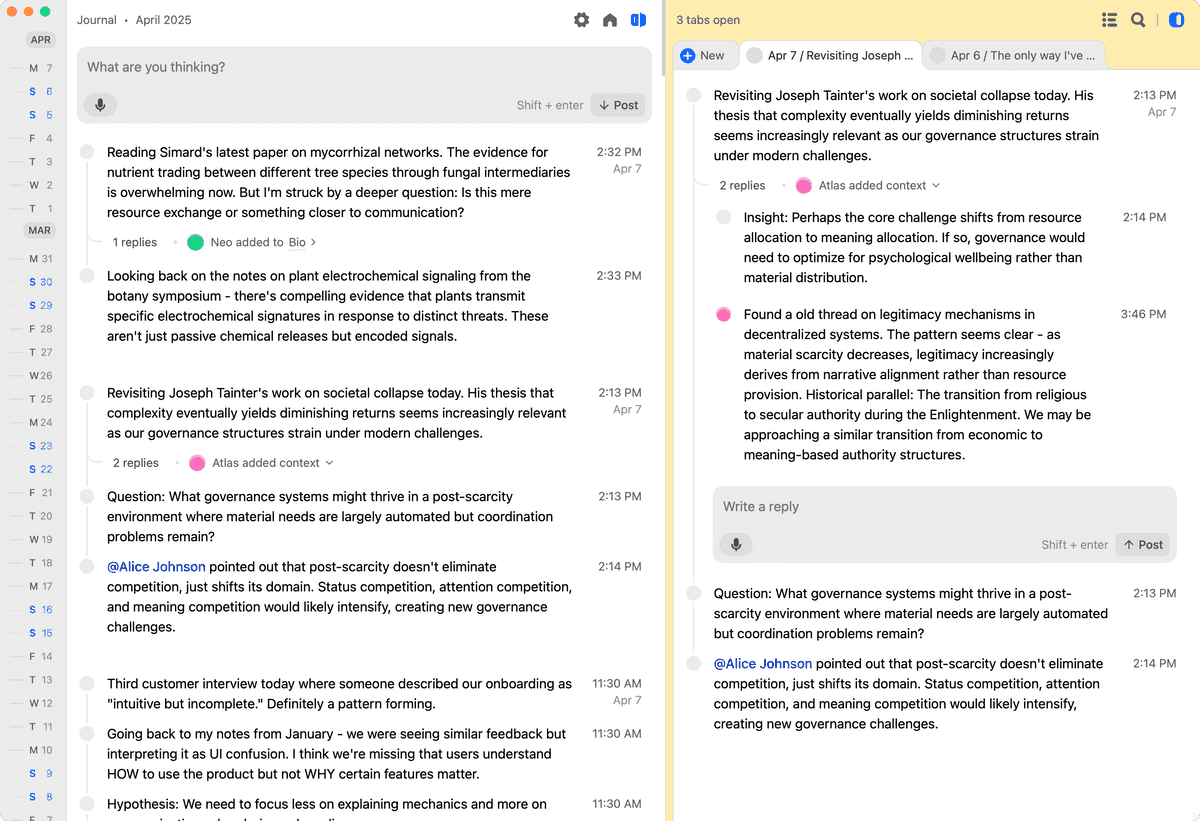What if you could selectively preserve the thoughts that matter most?
When you externalize the right thoughts in the right way, something transformative happens. Your ideas become objects you can examine from different angles - concepts to revisit with fresh perspective and problems to approach with both intuition and analysis.
Whether you're planning for the future or learning something hard, this externalization creates a productive distance between you and your thinking. Instead of ideas being inseparable from your consciousness, they become distinct entities you can work with, refine, and develop. This objectivity often reveals patterns, contradictions, and connections that remain invisible when ideas stay locked inside your mind.
Counterintuitively, thoughtful externalization simplifies your life rather than complicating it. When important ideas are safely captured and findable, your mind can release the cognitive burden of remembering everything. Your attention becomes more focused. Your thinking becomes clearer.
My journey with externalized thinking began years ago with the simplest of tools – pen and paper. Each day, I'd dedicate a page in my journal to capture fleeting thoughts, work through stubborn problems, and document insights. This analog approach taught me the fundamentals of what makes externalization valuable: the deliberate act of transforming internal cognition into something tangible. As my thinking evolved, so did my systems. I experimented with various frameworks and tools, each iteration teaching me something new about how our minds process and connect information when given the right external scaffolding.

The strategic value of externalization has increased exponentially with advances in AI. While thoughts in your head benefit only from your own cognitive processes, externalized thoughts can be enhanced through AI-powered analysis and connection. This technology doesn't replace your thinking—it multiplies it, finding connections between ideas captured months apart and revealing your own thinking patterns and blind spots.
A carefully cultivated external system becomes a thinking partner that evolves with you. It preserves contextual connections that would otherwise be lost, creates continuity across projects and years, and transforms isolated moments of brilliance into a coherent body of knowledge that appreciates over time.
The rise of AI as a universal knowledge tool has fundamentally changed how we should approach information processing. The competitive advantage no longer lies in what information you possess, but in how effectively you can leverage the collective knowledge at our fingertips. When everyone has access to similar information sources, the differentiator becomes your ability to synthesize, contextualize, and execute. This shift demands thinking tools that augment rather than replace our uniquely human capacities for insight, creativity, and judgment.
In a world where attention is our scarcest resource, externalization isn't just about storage—it's about liberation. Thoughtful externalization helps you think more clearly, see your ideas from new perspectives, and build on your best thinking without being overwhelmed.
Capture what matters. Find it instantly. See it clearly. That's the art of thoughtful externalization.